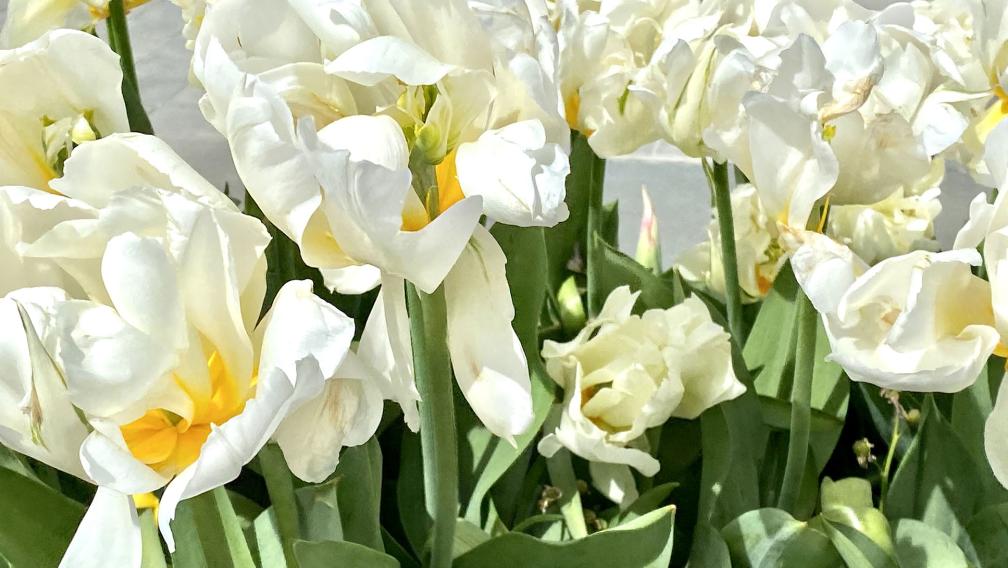Sunday’s reading from the Gospel of John is drawn from the farewell discourses of Jesus. Using imagery of vine and branches, we are told that Jesus is the vine, source of strength and support; disciples are the branches, growing to bear fruit; and God is the gardener who tends the branches. What does the natural process of growing fruit-bearing trees and tending to them have to do with us as disciples?
The illustration uses simple agricultural imagery in order to talk about having a life-giving relationship of mutuality with Jesus. We abide in God and God abides in us. The fruit of the Christian life comes from God and grows in relationship with God. For those who strive to order their lives around abiding in the presence of God, God begins to produce fruit in their lives. Pruning, then, can be seen as removing that which inhibits our spiritual growth.
“I am in God and God is in me.” This is my favorite micro-prayer to teach to young children and it is one of my daily prayers. It is easy to learn and could be a mantra for walking meditation — and it packs in some pretty sophisticated theology.
This simple prayer is an expression of union with the indwelling God of love. Jesus said, “Abide in me and I will abide with you.” Because of this union, we can become more fruitful. Because of this relationship, we are called to grow like branches spreading the good news of God’s love in the world. And as uncomfortable as the thought of being pruned might be, we rely on God to renew and shape and form and fill us in our daily lives.
Jesus said, “These things I have spoken to you, that my joy may be in you and that your joy may be full.” Alleluia!
Kathy Bozzuti-Jones
Dr. Kathy Bozzuti-Jones is Associate Director for Faith Formation & Education at Trinity Church Wall Street. Share your thoughts or questions with Kathy, and join her Wednesdays at 6:30pm for Contemplative Practice with Poetry.
Children’s Time
Sundays at 10am | Online
Children and their families are invited to learn together Sunday mornings. We’ll begin with an opening assembly, including a prayer and a song, then break into small groups for a time of exploration and community.
Godly Play (Preschool and older) — An interactive storytelling circle of wonder, faith, and play, followed by hands-on activity and sharing.
Story: Knowing Jesus in a New Way
Response Time: Drawing, coloring, and collage materials
Whole People of God (2nd Grade and older) — An interactive multimedia exploration on the week's liturgical themes with hands-on arts activities and sharing.
Lesson Theme: Who is the Vine; the Branches; the Fruit?
Activity: We ♥ Creation activities
This meeting opens early at 9:10am for the Family Service Watch Party — join us! If you are already registered for Children’s Time, we will meet on the same Zoom link. No need to register again.
Discovery: Evicted in the American City
Sundays at 10am | Online
Join the Discovery community as we explore the complex causes and impact of eviction on our neighbors and consider what it means for our Christian vocation.
Over these six weeks, our learning and reflection is centering on Matthew Desmond’s Pulitzer Prize-winning book, Evicted: Poverty and Profit in the American City. In his book, Desmond follows eight families in Milwaukee as they each struggle to keep a roof over their heads. He transforms our understanding of poverty and economic exploitation while providing fresh ideas for solving one of 21st-century America’s most devastating problems. The scenes of hope and loss remind us of the centrality of home, without which nothing else is possible. Learn more about Desmond’s work.
We will also learn from members of the Trinity Grants team about eviction in New York City, how Trinity Church grant recipients are working to prevent homelessness, and what we can do to help our neighbors.
Spiritual Resources
- In recent decades, advances in brain imagery have taught us much about the synaptic pruning process which occurs in early adolescence. It’s fascinating science and it makes some sense of teen behavior and their explosion of skill-building during this time. What if this were applied to spiritual capacity as well? What if the brain as an organ-ism was analogous to society? On the other hand, the pruning process eventually causes reduced “plasticity” in adulthood, i.e., it becomes harder to learn or to change, as is discussed by Alison Gopnik, author of The Gardener and the Carpenter and The Philosophical Baby, in this New York Times podcast. The point? Grapevines, babies, children, and adolescents are extraordinary models of God’s creation.
- Wendell Berry and Ellen Davis on “The Art of Being Creatures”
- Illustrated Ministry children's worship bulletin
- The Sunday Paper Junior
